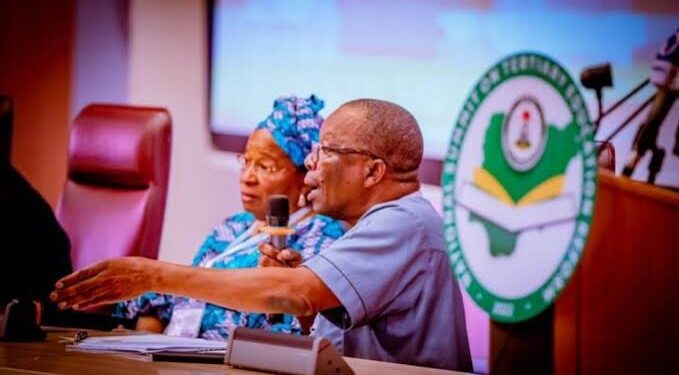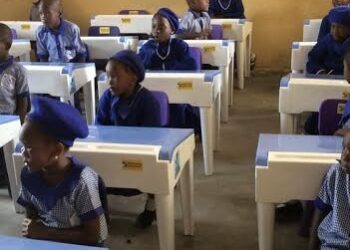Academic activities in Nigeria’s public universities may soon be disrupted as the Academic Staff Union of Universities (ASUU) threatens industrial action over the delayed release of a ₦300 billion revitalisation fund.
The delay is reportedly linked to a standoff between the Office of the Accountant General of the Federation (OAGF) and the Federal Ministry of Education.
A reliable source told BBC News that the OAGF is allegedly stalling the release of the funds, insisting on fresh presidential approval before disbursing them to universities nationwide.
In a recent high-level meeting, Nigeria’s Minister of Education, Dr Tunji Alausa, the Accountant General, and ASUU President, Prof. Emmanuel Osodeke, discussed the possibility of rolling over the 2023 revitalisation fund into the 2025 budget.
According to sources, a formal request has been sent to the Accountant General’s office to facilitate this process.
However, ASUU has expressed strong reservations about the government’s sincerity. Prof. Osodeke reportedly criticised the lack of political will to address the chronic underfunding of public universities, highlighting decaying infrastructure, unpaid allowances, and poor staff welfare as pressing issues.
ASUU has made it clear that failure to release the revitalisation fund could lead to a strike. The union has also threatened to withdraw from future negotiations if previous agreements remain unimplemented.
The revitalisation fund is part of a 2009 agreement between ASUU and the Federal Government, which outlined a ₦1.3 trillion intervention package over five years.
However, only a fraction of this amount has been released, leading to repeated industrial actions.
Amidst the growing tension, the Education Advancement Initiative (EAI), a non-governmental organisation, has called for an immediate release of ₦600 billion to revitalise public universities.
Dr Abimbola Tobi, Programme Director of EAI, accused government officials of deliberately undermining public universities to favour private institutions where they have vested interests.
Dr Tobi warned that neglecting public university education could have dire consequences, including increased crime rates due to unemployment and a lack of skills among young people. He urged President Bola Ahmed Tinubu to intervene and ensure the release of funds.
With ASUU’s patience running thin and government officials struggling to navigate bureaucratic bottlenecks, the fate of Nigeria’s public university system remains uncertain.
While efforts are reportedly being made to avert a strike, the continued delay in funding could lead to yet another disruption in the country’s academic calendar.
The Nigerian government now faces mounting pressure to fulfil its commitments and prevent another wave of industrial action that could cripple the education sector.











